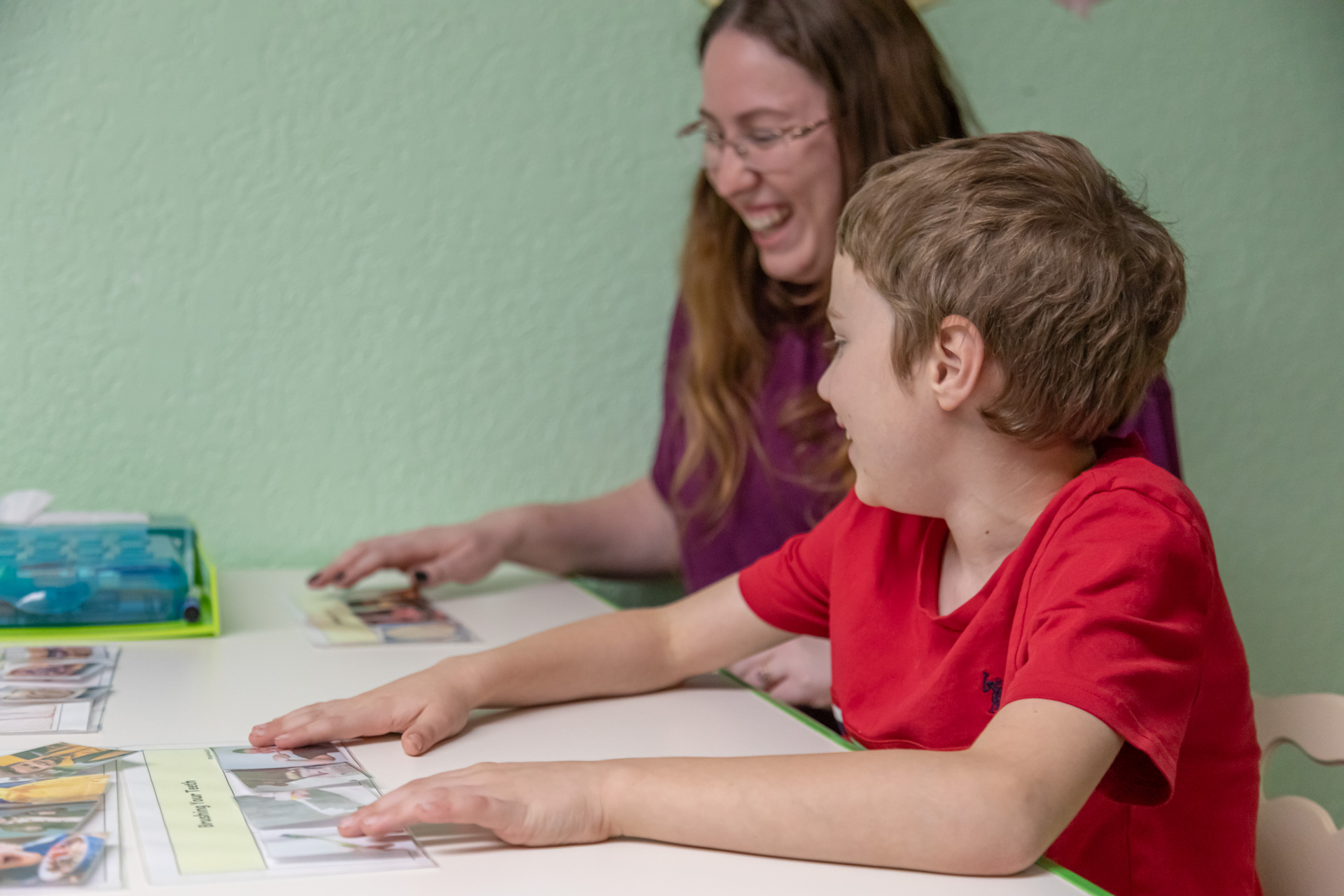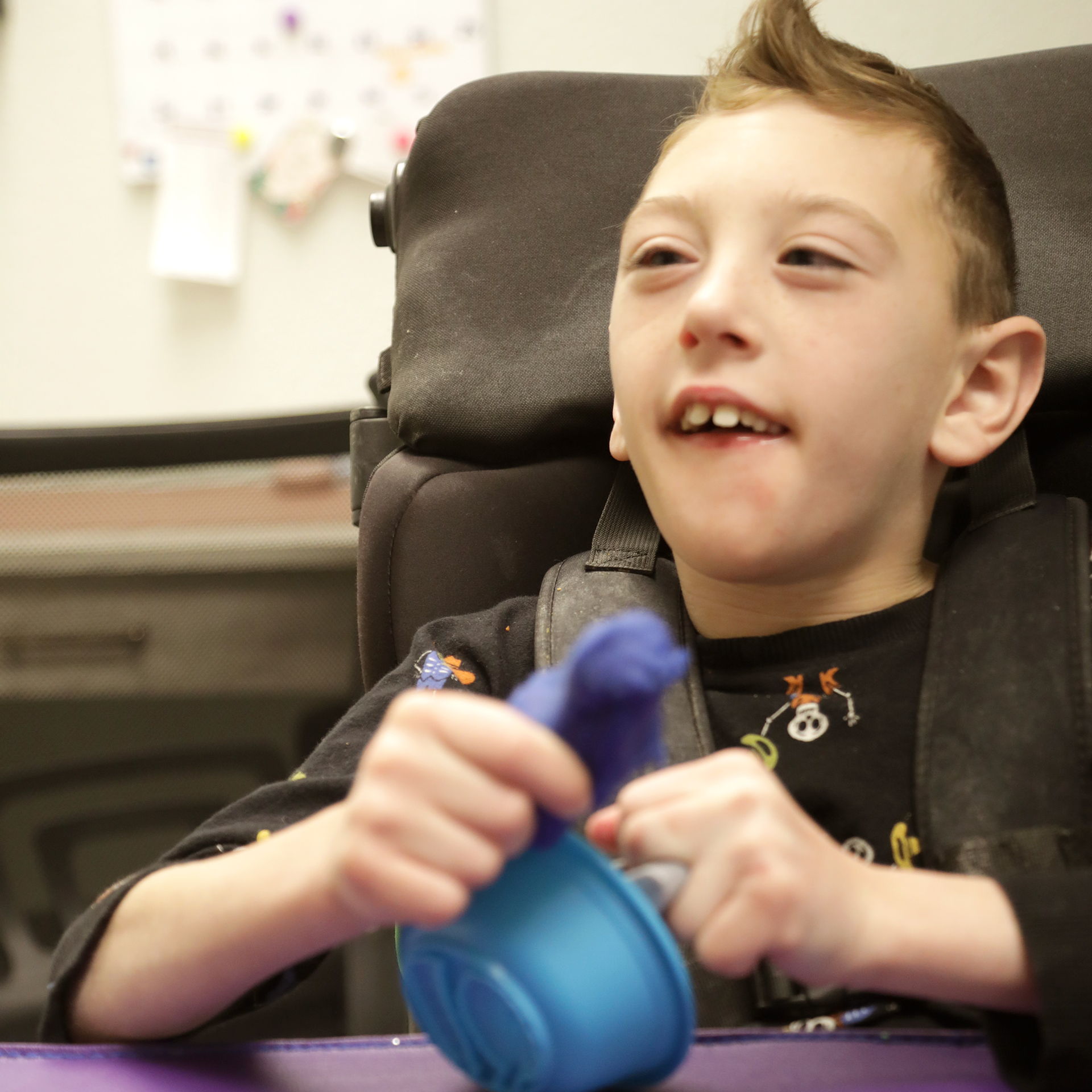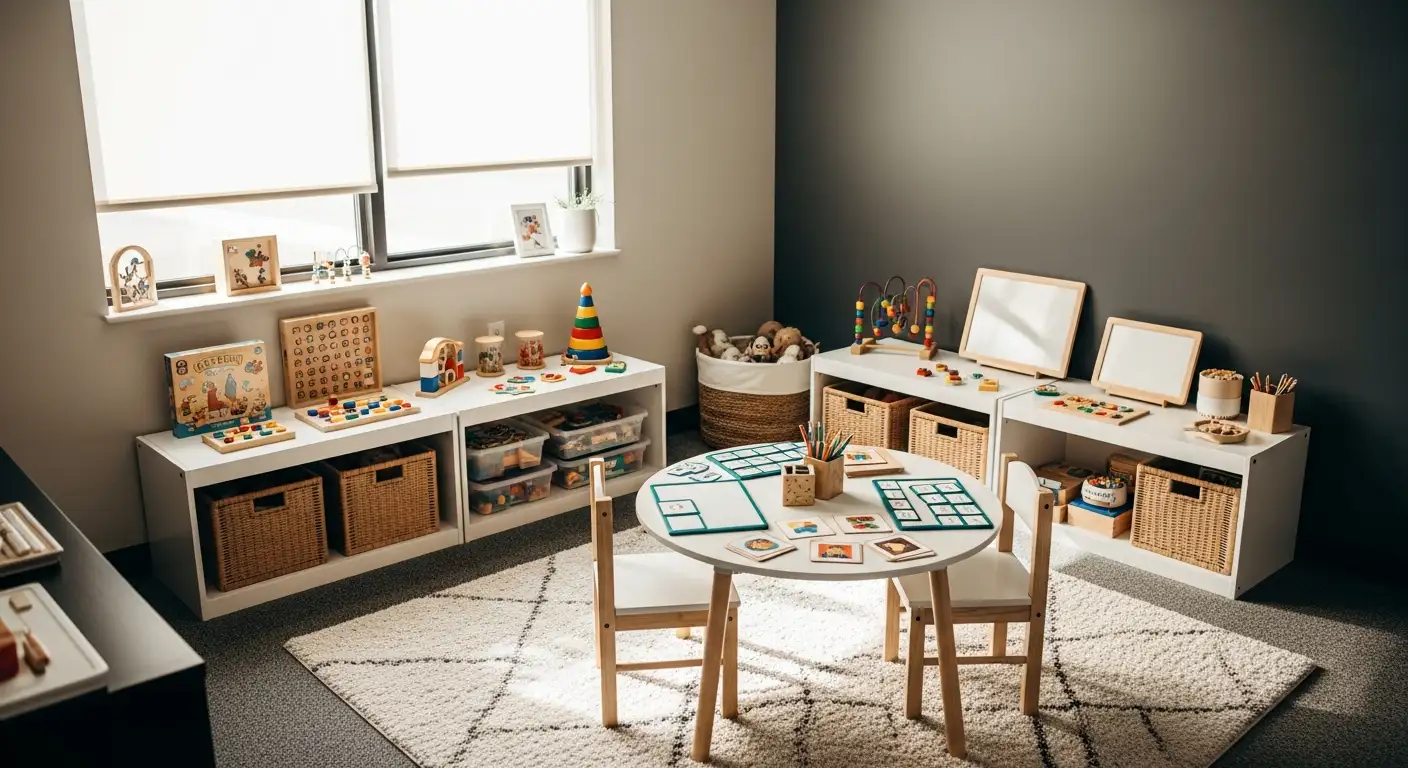How Occupational Therapy Encourages Self-Care Skills


Unlocking Children's Potential in Self-Care Skills
Occupational therapy plays a vital role in helping children develop essential self-care skills, enabling them to participate confidently and independently in everyday routines. This article explores how tailored interventions, environmental modifications, and caregiver involvement foster growth in areas such as dressing, feeding, and hygiene, supporting children's overall development and social integration.
The Foundations of Self-Care Skills in Childhood Development

Why is occupational therapy important in developing daily routines like dressing, feeding, and hygiene?
Occupational therapy (OT) plays a vital role in helping children build essential self-care skills such as dressing, grooming, hygiene, and feeding. Therapists implement engaging, play-based strategies that foster the development of fine motor skills like grasping and hand-eye coordination, which are necessary for tasks like buttoning, zipping, and using utensils. They also focus on improving gross motor skills and coordination for activities such as maintaining posture during dressing or bathing.
Beyond physical capabilities, OT addresses cognitive and emotional skills critical for independence, including planning, sequencing tasks, emotional regulation, and self-confidence. Sensory processing support is a key aspect, helping children respond appropriately to tactile input needed for grooming or dressing, thus reducing frustration and increasing compliance.
Overall, occupational therapists promote safety, independence, and confidence in daily routines, which significantly enhances a child’s quality of life. When children are supported in developing these routines early on, they are more likely to participate actively in social settings, school activities, and family life, fostering their overall growth and well-being.
How does occupational therapy support the development of self-care skills in children?
Occupational therapy supports children’s self-care skills through comprehensive assessment and individualized intervention plans. Therapists start by evaluating the child's current abilities and identifying specific challenges related to physical, sensory, cognitive, or emotional domains.
Interventions often include creating visual schedules, which depict each step of a routine to enable better understanding and sequencing. Establishing consistent routines helps children anticipate what comes next, reducing anxiety and promoting independence. Occupational therapists also modify environments with adaptive equipment—such as button hooks, sock aids, or non-slip mats—to make tasks easier and safer.
Focusing on developing fine motor skills improves precision and dexterity needed for activities like brushing teeth or managing utensils. Enhancing gross motor skills and strength supports postural control during self-care routines. Sensory strategies, like using weighted blankets or sensory-friendly clothing, help children tolerate tactile stimuli that are often involved in grooming and dressing.
Therapists often work within natural environments, such as the home or school, to ensure skills generalize across settings. Training caregivers on strategies and techniques ensures consistency and supports the child’s ongoing progress. The ultimate goal of occupational therapy is to foster independence, enhance participation, and boost self-esteem, leading to better social integration and overall developmental progress.
Developmental milestones for self-care from infancy to early childhood
Children develop self-care skills gradually, with milestones varying across individual growth patterns. From six months, infants begin to develop hand strength and control, enabling rudimentary self-feeding with finger foods or attempting to hold a spoon.
By age one, most children can assist with dressing by pulling off simple clothing or pushing arms through sleeves, and they often start practicing tooth brushing with help. Between ages two and three, preschoolers typically master brushing teeth with supervision, head to the toilet independently, and perform basic grooming tasks like washing hands and face.
Between ages four and five, children usually develop the ability to dress more independently, manage zippers or buttons, and use utensils effectively. They can establish Bath routines, fine-tune grooming skills, and begin organizing personal belongings.
By age six to eight, most children handle a wide range of self-care tasks independently, including dressing, toileting, bathing, and personal hygiene routines. These developmental strides foster confidence and prepare children for more complex life skills necessary in school and social contexts.
The importance of developing independence in daily routines
Fostering independence in daily routines is fundamental to a child’s overall growth, social participation, and self-esteem. Successful self-care skills allow children to participate actively in family life, school, and peer interactions.
Developing independence also teaches children important planning, sequencing, and organizational skills, critical for academic success and life management. It encourages problem-solving and persistence, fostering resilience when faced with challenges.
Moreover, independence in self-care reduces reliance on caregivers, promoting a sense of autonomy that can positively influence emotional health and reduce caregiver stress. When children learn to manage their routines confidently, they are more likely to develop a positive attitude towards learning and social interactions.
Early support in acquiring these skills through occupational therapy ensures that children reach their developmental milestones on time, creating a strong foundation for lifelong independence and participation in daily life.
| Aspect | Developmental Focus | Age Range | Importance |
|---|---|---|---|
| Fine Motor Skills | Buttoning, zipping, utensil use | 2-8 years | Enables independence in dressing and eating |
| Gross Motor Skills | Postural control during routines | 1-8 years | Supports comfort and safety in daily activities |
| Sensory Processing | Tolerance to tactile input | 0-8 years | Reduces frustration in dressing and grooming |
| Cognitive Skills | Sequencing, planning routines | 2-8 years | Facilitates adherence and independence in self-care |
| Emotional Regulation | Confidence and persistence | 1-8 years | Encourages continued participation and resilience |
| Environmental Adaptations | Assistive devices and modifications | 0-8 years | Promotes safety and ease in daily routines |
Understanding the developmental progression of self-care skills highlights the importance of early intervention. Occupational therapists tailor strategies to each child's age and abilities, ensuring steady and confident growth towards independence.
Strategies and Techniques Used by Occupational Therapists

What strategies do occupational therapists use to promote self-care and independence in children?
Occupational therapists employ a diverse array of strategies to foster self-care skills and independence among children. One common method involves the use of visual supports, such as visual schedules, picture cards, and checklists. These visual aids help children understand and sequence tasks, breaking down complex activities into manageable steps. For instance, a visual routine for dressing may include pictures of clothing items and their order of use, empowering children to complete the task with minimal assistance.
Establishing consistent routines is another fundamental approach. Routines provide predictability, reducing anxiety and helping children anticipate upcoming activities. Incorporating self-care tasks into play-based activities or chores can further enhance engagement and motivation. For example, practicing brushing teeth through pretend play or singing songs during bathing sessions makes the learning process enjoyable and effective.
Addressing sensory processing needs is crucial. Therapists support sensory tolerance using specific tools like weighted blankets or sensory brushes, and interventions such as sensory diets. These help children better tolerate tactile input essential for grooming and dressing, making these tasks less overwhelming.
Furthermore, occupational therapists teach skills through modeling, demonstration, and positive reinforcement. They develop personalized approaches tailored to each child's abilities and preferences, which builds confidence and promotes mastery of daily tasks like grooming, dressing, and bathing.
What interventions are used by occupational therapists to develop self-care skills in children?
Occupational therapists utilize a variety of interventions designed to develop self-care competencies effectively. Task-specific training involves guiding children through activities such as buttoning shirts, zipping zippers, brushing teeth, and using utensils. These activities are often broken into smaller steps, with the therapist gradually increasing complexity as the child progresses.
Play-based approaches are heavily emphasized, making learning natural and enjoyable. For example, using social stories or role-playing scenarios helps children understand the expectations around personal care routines in a relatable way.
Sensory integration techniques are employed to improve tactile, vestibular, and proprioceptive processing. These interventions help children become more comfortable with sensory input from grooming tools or clothing, thereby increasing their engagement.
Visual schedules and social stories serve as cognitive supports, providing clear, step-by-step guidance. When combined with environmental modifications—such as non-slip mats, grab handles, or adaptive utensils—children can perform tasks with greater ease and safety.
Environmental adaptations include introducing assistive devices like sock aids, button hooks, or shoes with Velcro closures, which simplify dressing efforts. The involvement of parents and caregivers in training ensures that practices are consistently applied at home or in school environments.
Overall, the interventions focus on strengthening motor skills, enhancing sensory tolerance, developing sequencing and planning abilities, and establishing consistent routines—all vital for cultivating independence in self-care.
The Impact of OT on Children's Independence and Confidence

What benefits does occupational therapy offer in enhancing daily living skills for children?
Occupational therapy provides essential support for children to develop daily living skills that are foundational for independence. These skills encompass activities such as dressing, feeding, grooming, toileting, and bathing. Through personalized interventions, occupational therapists help children improve their fine motor skills, such as buttoning and zipping, and gross motor skills necessary for stable, coordinated movement.
Therapists utilize strategies like sensory integration, task analysis, and adaptive equipment to make self-care activities more manageable and engaging. For instance, visual schedules and reward charts motivate children and help them learn routines effectively. Moreover, occupational therapy addresses sensory processing challenges, often present in children with autism or sensory processing disorders, enabling them to tolerate tactile input needed for grooming and dressing.
Development of effective sensory processing and reaction regulation assists children in participating confidently in daily routines. This is complemented by environmental modifications, such as non-slip mats or grab handles, that promote safety and ease. The overall goal is to foster self-sufficiency, enabling children to manage their personal care independently and participate actively in social and educational environments.
How does occupational therapy support emotional and social development in children?
Beyond physical skills, occupational therapy plays a vital role in nurturing emotional resilience and social competence. Therapists work on strategies that promote self-esteem by helping children succeed in everyday activities, which builds confidence and reduces frustration.
Supporting emotional regulation involves teaching children how to manage their responses to sensory stimuli and daily stressors. Techniques like deep breathing, sensory diets, and structured routines help children develop self-control and patience.
Social skills are often targeted through role-playing, social stories, and group activities, creating natural opportunities for children to practice communication and interaction skills. These activities enhance peer relationships, improve behavior in social settings, and foster a sense of belonging.
By integrating these approaches, occupational therapy not only improves children’s functional independence but also strengthens their mental health, resilience, and overall well-being. Children learn to navigate daily challenges with greater confidence, which positively impacts their social participation and long-term development.
Supporting Self-Care Development at Home and School

How can parents and caregivers support the development of self-care skills in children?
Parents and caregivers play a vital role in nurturing a child's independence in self-care activities. They can start by modeling routines such as brushing teeth, dressing, and self-feeding, demonstrating these tasks in an engaging and supportive way. Children often learn best through imitation, so consistent demonstration encourages practice and mastery.
Encouraging children to take responsibility in small ways fosters confidence. This could include helping with simple chores like setting the table, dressing themselves, or grooming. Using positive reinforcement, like praise or reward charts, motivates children to participate willingly.
Establishing predictable routines helps children understand what to expect, reducing anxiety and promoting independence. Keeping instructions clear and simple ensures the child can focus on learning each step effectively.
Activities outside the home are equally beneficial. Outdoor play enhances motor development, balance, and endurance—important for self-care tasks such as bathing or dressing.
Social play also supports self-care skills. Engaging in parallel or cooperative play helps develop communication, patience, and problem-solving skills, all of which contribute to better self-care and social competence.
Creating a structured environment with visual aids, like picture schedules or timers, can help children remember sequences and time their activities. Consistent use of these tools across settings reinforces learning.
What is the significance of early intervention in developing self-care skills?
Early intervention is crucial for laying the groundwork for lifelong independence. When developmental delays or difficulties in self-care emerge, early support through occupational therapy can prevent secondary problems such as low self-esteem, social withdrawal, or dependence.
Intervening early allows therapists and families to develop tailored strategies that suit the child's specific needs—be it sensory sensitivity, fine motor skill delays, or executive functioning challenges. These interventions focus on building foundational skills in a way that is engaging and appropriate for the child's developmental stage.
Timely support also means that children tend to acquire self-care skills more easily, as early development is more adaptable. Skills learned early can be integrated into daily routines more seamlessly, leading to better independence in activities like toileting, grooming, and dressing.
Furthermore, early involvement of caregivers ensures consistency across home, school, and therapy environments. This coordinated approach reinforces learning and accelerates skill development.
Overall, early intervention not only enhances current abilities but also sets a positive trajectory for future social, emotional, and academic success, fostering a child's autonomy and confidence in everyday life.
Long-Term Benefits of Occupational Therapy in Self-Care and Independence
What long-term benefits does occupational therapy provide for children?
Occupational therapy (OT) offers significant, lasting advantages for children, especially in terms of confidence, social skills, and participation in daily life. As children learn and refine self-care skills such as dressing, grooming, and feeding, they develop a sense of independence that fosters greater self-esteem. This confidence encourages more active social engagement and improves peer interactions, which are crucial for holistic development.
OT also plays a vital role in reducing the reliance of families and caregivers on constant assistance. By cultivating autonomous behaviors, occupational therapy helps families function more independently and reduces caregiver stress.
Beyond immediate improvements, OT supports ongoing growth in essential areas like self-regulation and adaptive skills. Children become better equipped to handle new challenges, adapt to changing environments, and sustain their independence over the years.
These improvements contribute to a child's overall quality of life, promoting lifelong skills, better educational participation, social integration, and emotional well-being. The foundational skills gained through OT foster resilience and open pathways to greater self-sufficiency in adulthood.
Summary Table:
| Benefits of Occupational Therapy | Impact on Child Development | Additional Benefits |
|---|---|---|
| Increased confidence | Enhances self-esteem and emotional health | Encourages social participation |
| Better social skills | Improves peer interactions | Fosters independence in daily tasks |
| Improved daily life participation | Promotes engagement in school and community activities | Reduces caregiver burden |
| Long-term competence | Strengthens lifelong self-care abilities | Supports resilience and adaptability |
How does occupational therapy support continual development of self-regulation and adaptive skills?
OT continually nurtures a child's ability to manage emotions, responses, and behaviors through targeted strategies. Therapists utilize sensory integration techniques, which help children process tactile, proprioceptive, and vestibular stimuli more effectively. These sensory strategies, combined with routines and self-awareness exercises, promote emotional stability and resilience.
By establishing and reinforcing predictable routines and schedules, occupational therapy builds a framework that children can depend on, helping them develop self-regulation skills that extend across various environments, such as home, school, and social settings.
Furthermore, OT emphasizes problem-solving and adaptive skill-building. Children are coached to approach new or challenging activities with confidence, utilizing tools like visual supports, adaptive devices, and environmental modifications.
Consistent intervention ensures that children not only acquire these vital skills but also maintain and refine them over time, fostering ongoing independence. This development is essential for successful navigation of daily challenges and supports mental health, emotional well-being, and long-term resilience.
Summary Table:
| Support Area | Techniques Used | Outcomes Achieved |
|---|---|---|
| Self-regulation | Sensory integration, routines, self-awareness exercises | Emotional stability, resilience |
| Adaptive skills | Visual supports, environmental modifications | Problem-solving, independence |
| Ongoing development | Reinforced practice, consistent routines | Longevity of skill mastery |
Final thoughts
Occupational therapy's long-term benefits extend well beyond immediate skill development. By fostering confidence, social interactions, and independence, OT helps children reach pivotal milestones that shape their future. It empowers them with tools to navigate life's challenges, adapt to new environments, and sustain their growth into resilient, self-reliant adults.
As children develop, the skills learned through OT serve as a solid foundation for academic success, social integration, and personal fulfillment. The ongoing support of occupational therapists ensures these benefits are durable, adaptable, and aligned with each child's unique needs, ultimately promoting a vibrant, autonomous future for every child.
Empowering Children for a Self-Reliant Future
Occupational therapy is a powerful tool in nurturing children's self-care skills, enabling them to lead independent, confident, and socially integrated lives. Through personalized interventions, caregiver involvement, and strategic use of adaptive tools and routines, OT supports children in reaching developmental milestones and overcoming challenges. The long-term benefits extend beyond individual growth, fostering resilience, emotional well-being, and lifelong independence. Investing in early occupational therapy not only improves immediate functional abilities but also paves the way for a more autonomous and enriching future for children and their families.
References
- How Can Occupational Therapy Help Your Child Develop Self Care ...
- Occupational Therapy Can Help Your Child Develop Self Care Skills
- Top 10 Ways Occupational Therapy Can Help Children with Self-Care
- Self Care Skills - Kid Sense Child Development
- 5 Essential OT Tips for Improving Self-Care Skills - Skill Point Therapy
- Self-Care Skills Therapy | Bozeman, MT | Root Pediatrics
- Self-Care Skills for Children - Together by St. Jude™
- Advantages of Occupational Therapy: A Path to Wellness - Coral Care
- Promoting Self-Care Skills: Dressing, Feeding, and Beyond
- Occupational Therapy Teaches Independence in Self-Care for Kids
Recent articles

Celebrating Small Wins: How Therapy Helps Kids Build Confidence All Year Long
Learn why small wins in therapy matter, how they boost your child’s confidence, and simple ways families can celebrate progress all year long.

Empowering Missoula Children to Grow With Confidence and Connection
Learn how ABA therapy in Missoula helps children build communication, independence, and confidence through personalized, family‑centered support at Advanced Therapy Clinic.

Compassionate Pediatric Therapy in Butte, Montana
A welcoming place where every child’s potential is celebrated

How Pediatric Therapy Helps Kids Thrive across Montana and Wyoming
A supportive guide for families exploring therapy options in Billings, Butte, Missoula or Sheridan.

How to Choose the Right Pediatric Therapy Clinic in Billings, Montana
A Parent‑Friendly Guide To Finding The Best Support For Your Child

Expressive Speech Delay 2-Year-Old
Understanding and Addressing Expressive Speech Delay in Toddlers

